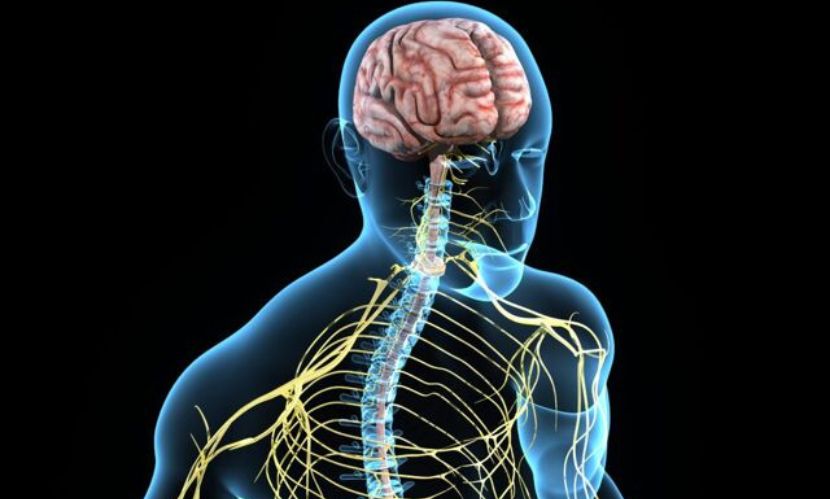We often ignore subtle signs our teeth give us. A little sting here, a sore spot there we brush it off. But sometimes, these minor symptoms hide something much bigger. Let’s face it our teeth can’t talk, but they sure do scream for help when things go wrong. Dental experts warn that early intervention saves you from painful (and expensive) treatments later. Unfortunately, a lot of individuals wait until it’s too late.Knowing what to look for might just save your smile or more.
1. That Hard Flake Wasn’t Just Food
Have you ever felt a small piece break off while you chewed something soft? At first, you assume it’s a food particle. But what if it isn’t? Some patients report finding gritty or hard pieces in their mouths only to realize later it’s tartar breaking off the back of teeth. That’s a red flag. Dental hygienists explain that tartar hardened plaque doesn’t usually fall off unless there’s underlying gum disease or severe decay. A 2023 article from the Journal of Periodontology confirms that when calculus flakes off, it’s often a sign of advanced gingivitis or hidden infections. Don’t wait if this is occurring to you. See a dentist. Something’s brewing under the surface.
2. You Bleed Every Time You Brush
This one might seem minor. Maybe you brushed a little too hard. Or perhaps your toothbrush has firm bristles. But daily bleeding? That’s not normal. In fact, the American Dental Association (ADA) lists persistent gum bleeding as one of the first signs of periodontal disease. Healthy gums don’t bleed easily. If they do, it means inflammation is setting in. Additionally, it might damage your jawbone and result in tooth loss if treatment is not received. Think of bleeding gums as your body’s cry for help a silent alarm going off every morning and night.
3. Your Teeth Are Moving (and You Didn’t Get Braces)
Have you noticed gaps appearing where none existed? Or maybe a once-straight tooth now tilts oddly? Tooth shifting isn’t always about braces or aging. Sometimes, it’s tied to bone loss or gum recession. And yes this ties back to the earlier point about tartar breaking off back of teeth. The foundation of the tooth is weakened when tartar forms below the gum line. Over time, your teeth become unstable. A 2022 study in Clinical Oral Investigations linked subgingival tartar to 68% of cases involving adult tooth movement. If your smile’s changing without consent, your teeth might be waving a white flag.
4. Bad Breath That Won’t Go Away
We all get morning breath. That’s normal. But chronic halitosis the kind that mints or mouthwash won’t fix is something else. The odor is frequently caused by bacteria that live deep within your gums or in the spaces between your teeth.Experts from Mayo Clinic note that bad breath lasting overa week, even with brushing and flossing, is frequently associated with cavities or gum disease. The smell comes from decaying food particles, infected tissue, or even pus trapped in pockets between your gums and teeth. Gross, yes. But important to know. If people are subtly stepping back mid-conversation, your mouth may be telling you it needs some serious TLC.
5. Constant Dry Mouth
Saliva serves many purposes than only aiding in digestion. It protects your teeth by eliminating bacteria and neutralizing acids. So when your mouth feels like the Sahara, things can spiral quickly. According to the Cleveland Clinic, dry mouth increases your risk of tooth decay, gum infections, and even oral thrush. Causes range from medication side effects to diabetes or autoimmune diseases. If water doesn’t help and chewing gum only does so much, it’s worth talking to your dentist or physician. Left unchecked, dry mouth becomes a gateway for all kinds of dental drama.
6. Your Gums Look Like They’re Shrinking
No, it’s not your imagination. Gum recession may be the cause if your teeth appear longer than they used to be. And that’s not just a cosmetic issue it exposes your roots and weakens your entire dental structure. Gums recede for many reasons: aggressive brushing, genetics, or untreated gingivitis. But once they pull back, it’s hard to get them to regrow. The British Dental Journal warns that exposed roots are highly sensitive and vulnerable to decay.If your gum line is noticeably uneven and you have trouble drinking cold liquids, your teeth are trying to tell you something. It’s not good either.
7. Swelling After a Tooth Extraction (Long After, Too)
Here’s one many folks misunderstand. Swelling right after an extraction? Totally normal. But when puffiness shows up days or weeks later, that’s trouble. And yes, gum swelling after tooth extraction can mean several things infection, a dry socket, or food trapped deep inside. A recent clinical report by the American Association of Oral and Maxillofacial Surgeons pointed out that late-stage gum swelling post-extraction often leads to delayed healing. Patients report tenderness, throbbing pain, and even pus. If that sounds familiar, get help immediately. Delaying could risk bone infection or spreading bacteria to other areas. Your gums aren’t just sore. They’re sounding the alarm.
FAQs
Q: Why does tartar sometimes break off by itself?
Tartar is calcified plaque. Pieces may come loose if gum disease progresses or oral hygiene deteriorates. This isn’t healthy it often means your gums and teeth are inflamed or damaged beneath the surface.
Q: Does gum bleeding always indicate gum disease?
Not always, but frequent bleeding is usually related to inflammation, poor oral hygiene, or vitamin deficiency. Still, it’s smart to get it checked.
Q: What is the typical duration of gum swelling following tooth extraction?
Swelling is common in the first 2-3 days. But if gum swelling after tooth extraction lasts longer or worsens, it might signal infection or other complications.
Q: Can dry mouth actually harm my teeth?
Yes. Saliva is essential for neutralizing acids and removing bacteria. Chronic dry mouth increases the risk of cavities, infections, and even bad breath.
Q: What’s the biggest mistake people make after noticing symptoms?
They wait. Many people ignore mild signs thinking they’ll go away. In reality, early treatment is easier, faster, and cheaper.
Final Thoughts
We only get one set of adult teeth no backups, no do-overs. That’s why it’s critical to listen when your mouth starts whispering for help. From tartar breaking off back of teeth to gum swelling after tooth extraction, every sign means something. Your job? Don’t ignore it. Dentists don’t just fill cavities they help prevent deeper damage. If you’ve noticed any of these seven signs, it’s time to stop guessing and start acting. Regular checkups, better hygiene habits, and a little attention can go a long way. Your teeth may not have a voice, but if they did? They’d be shouting by now.


